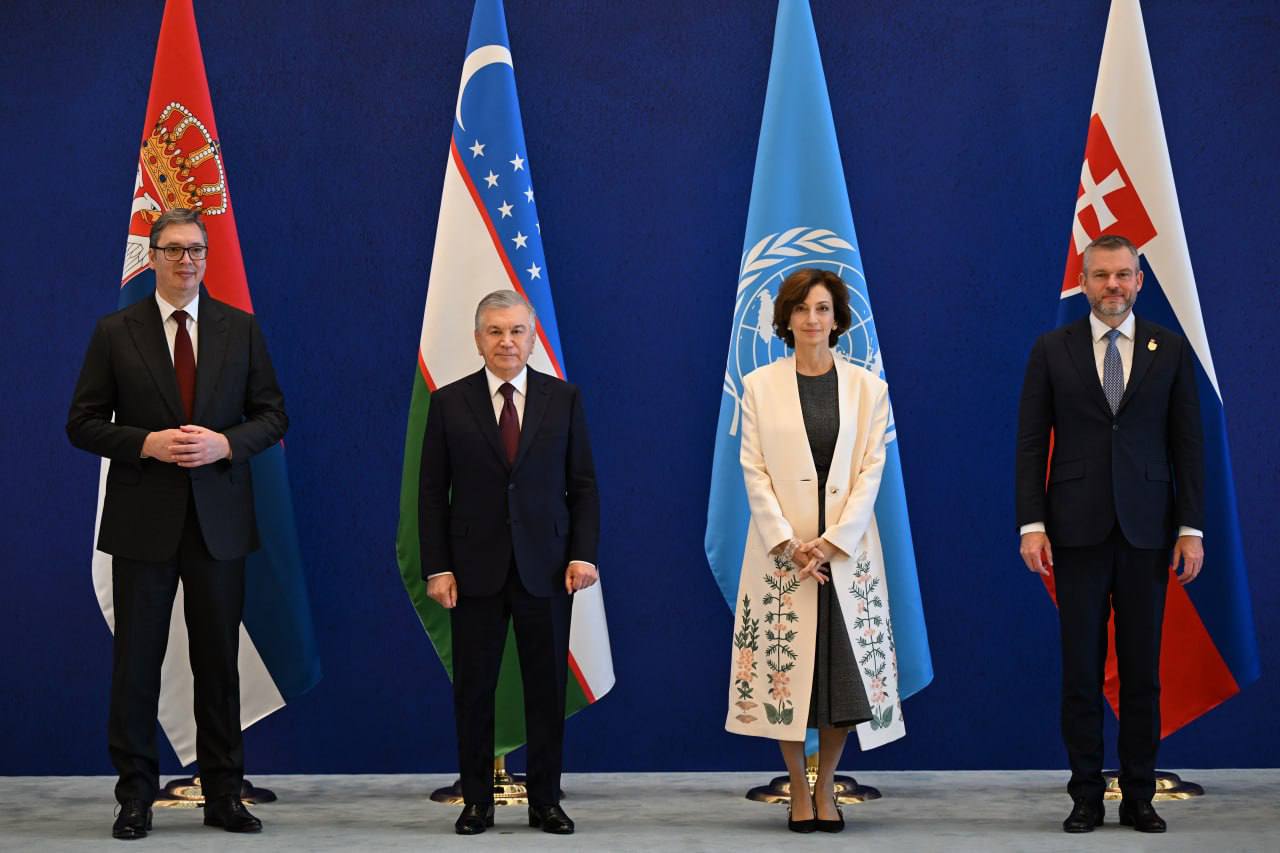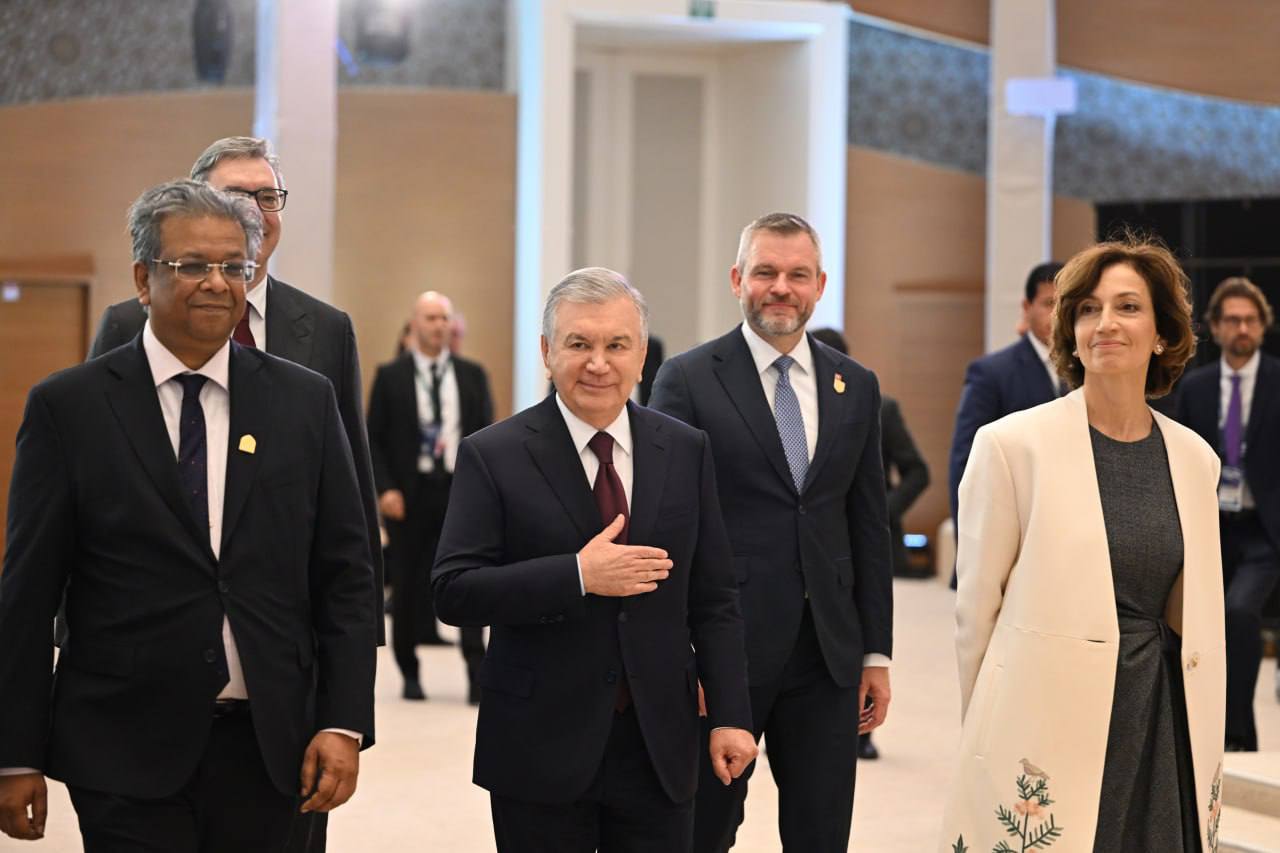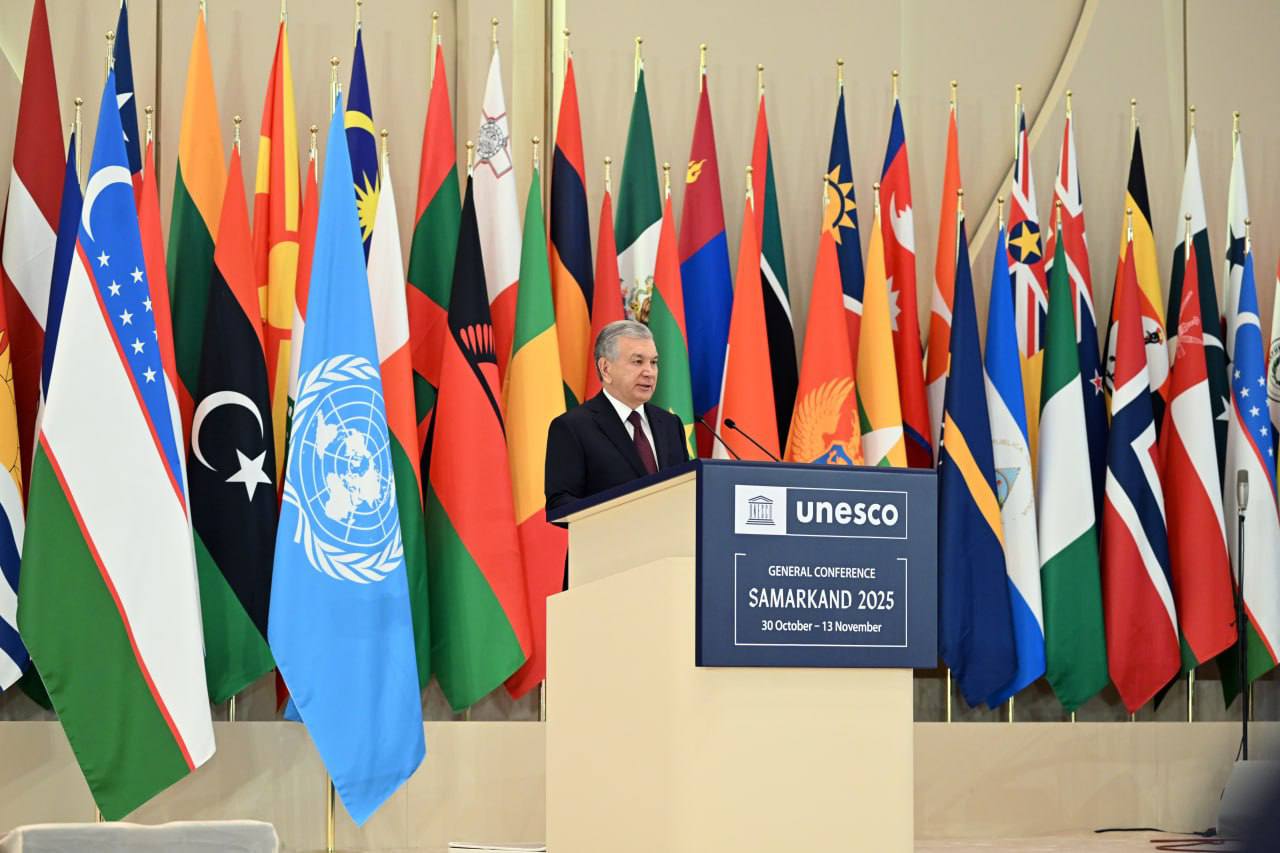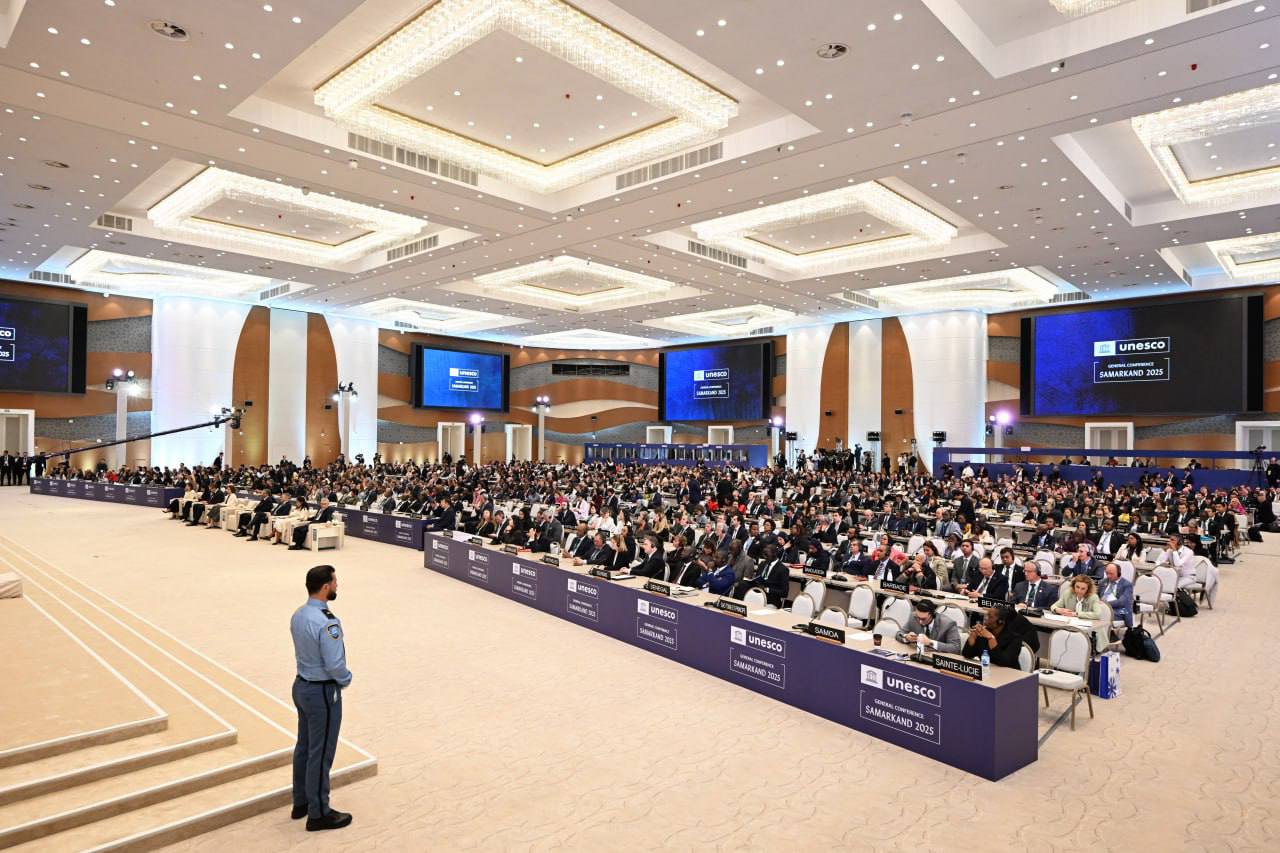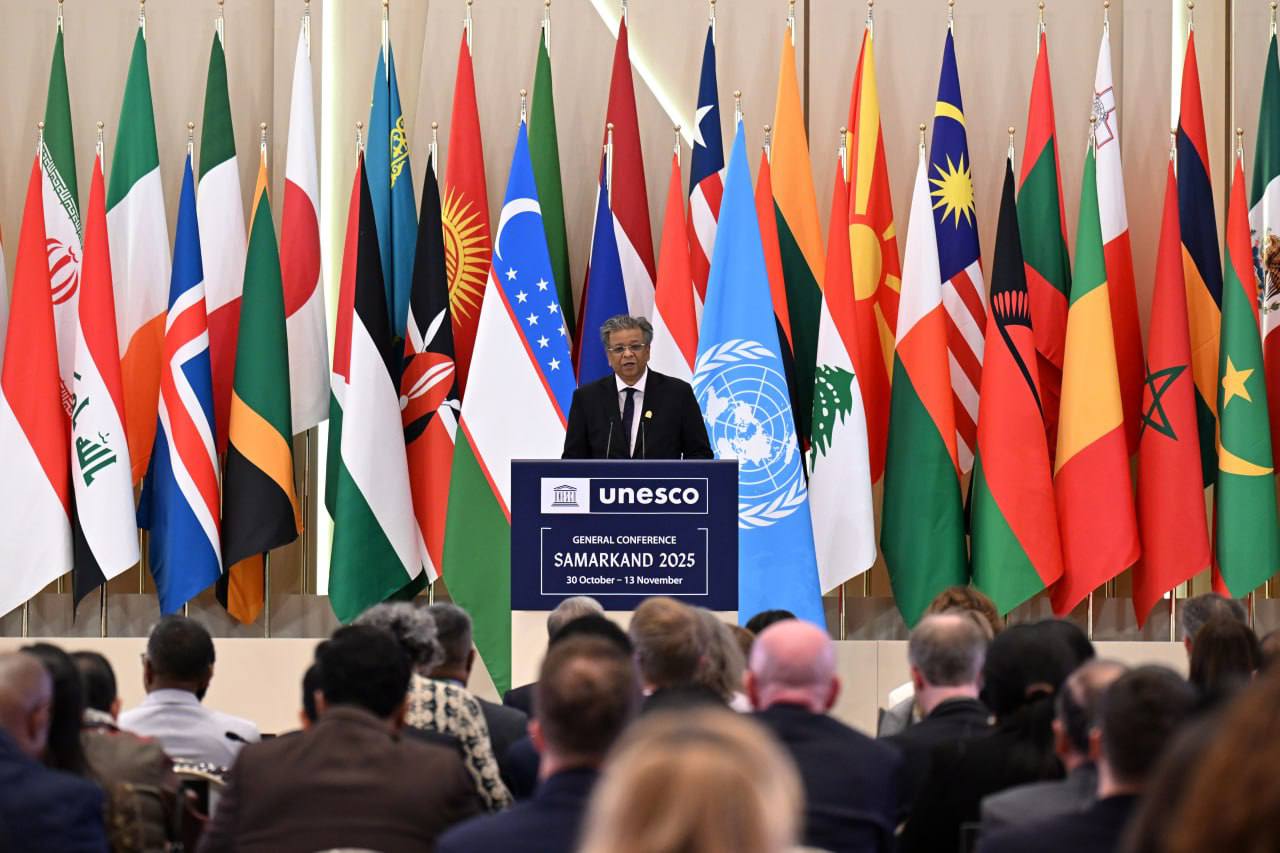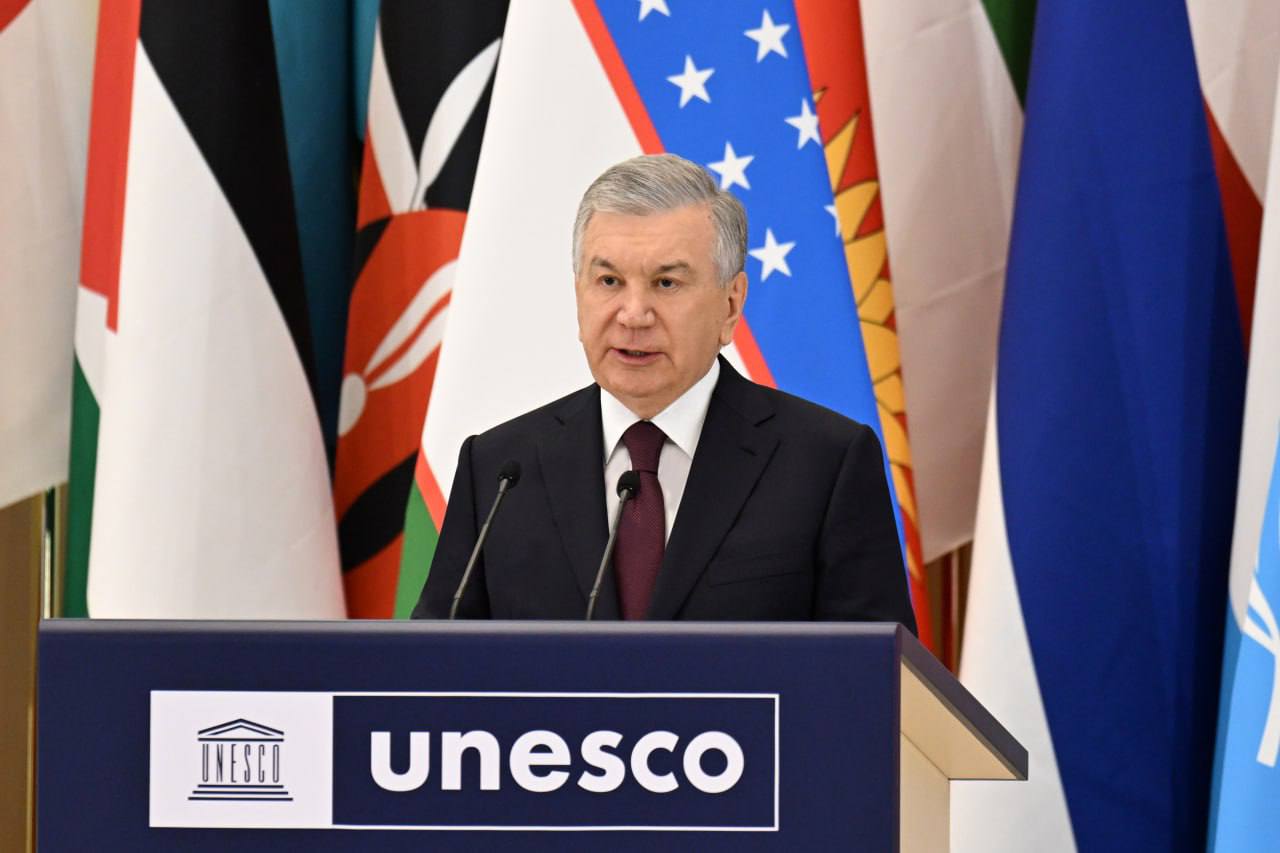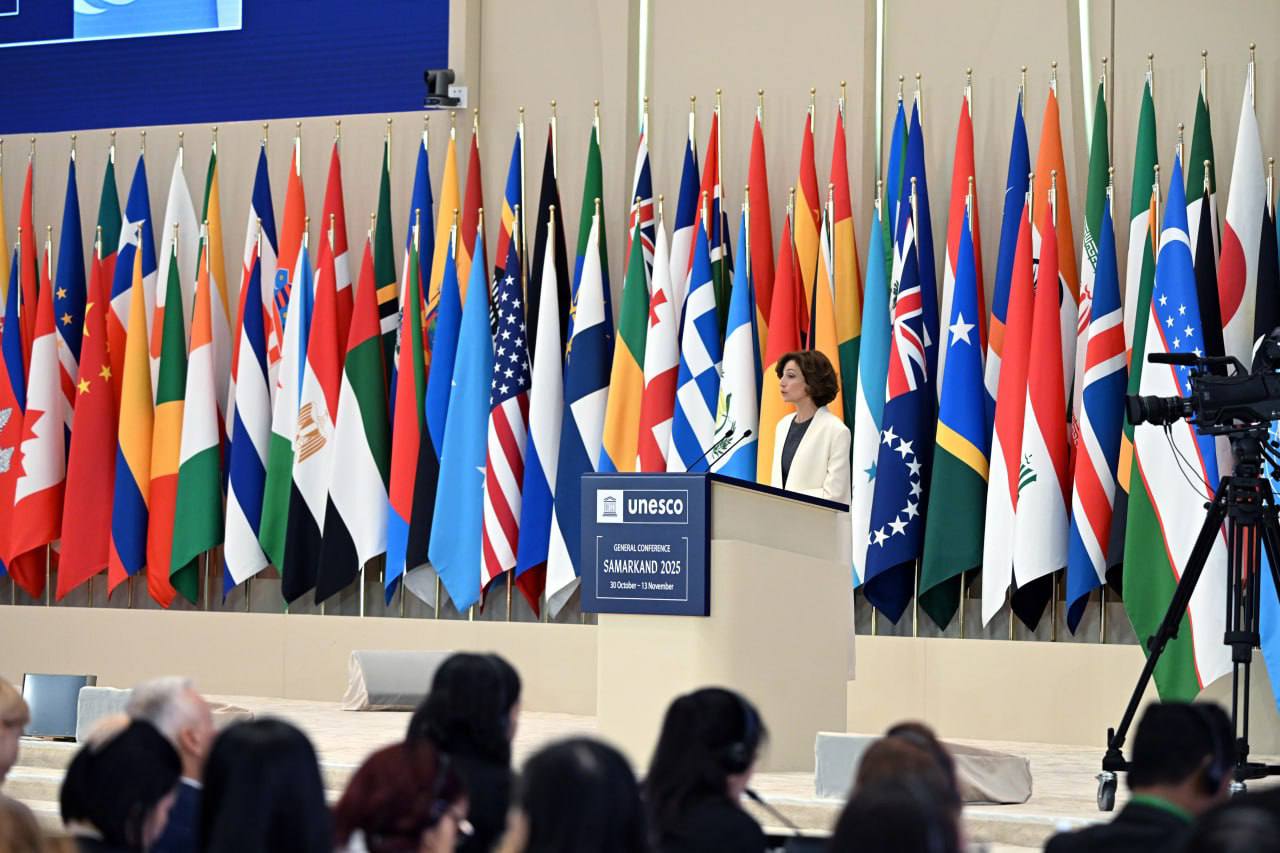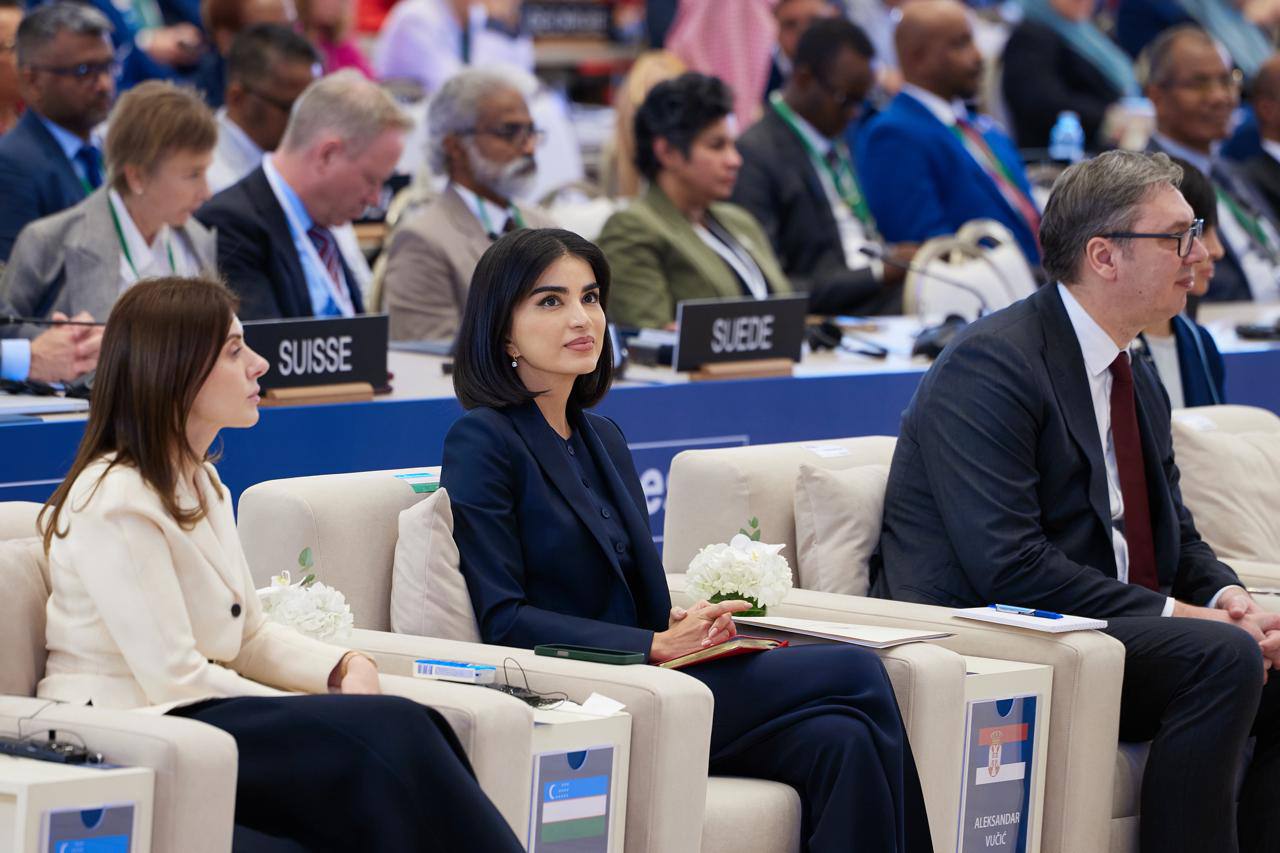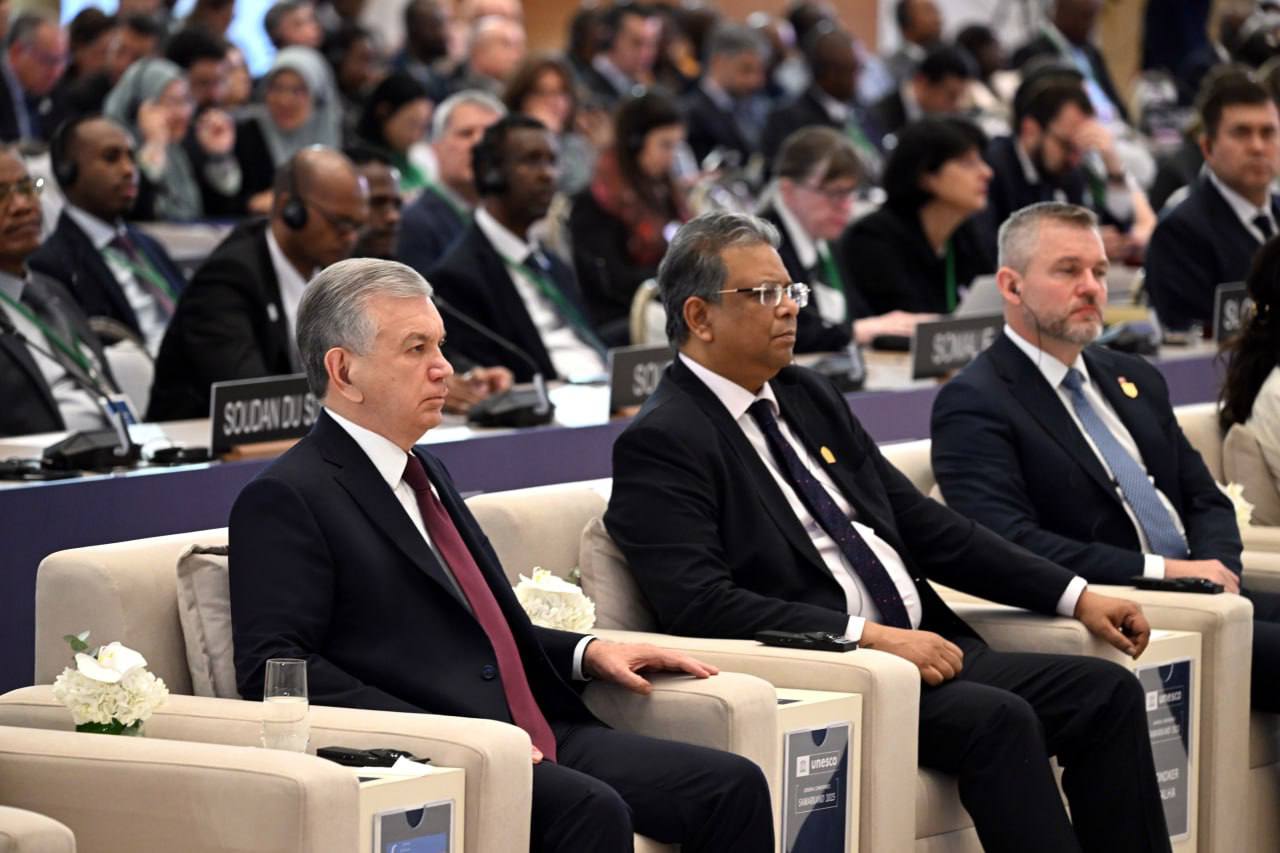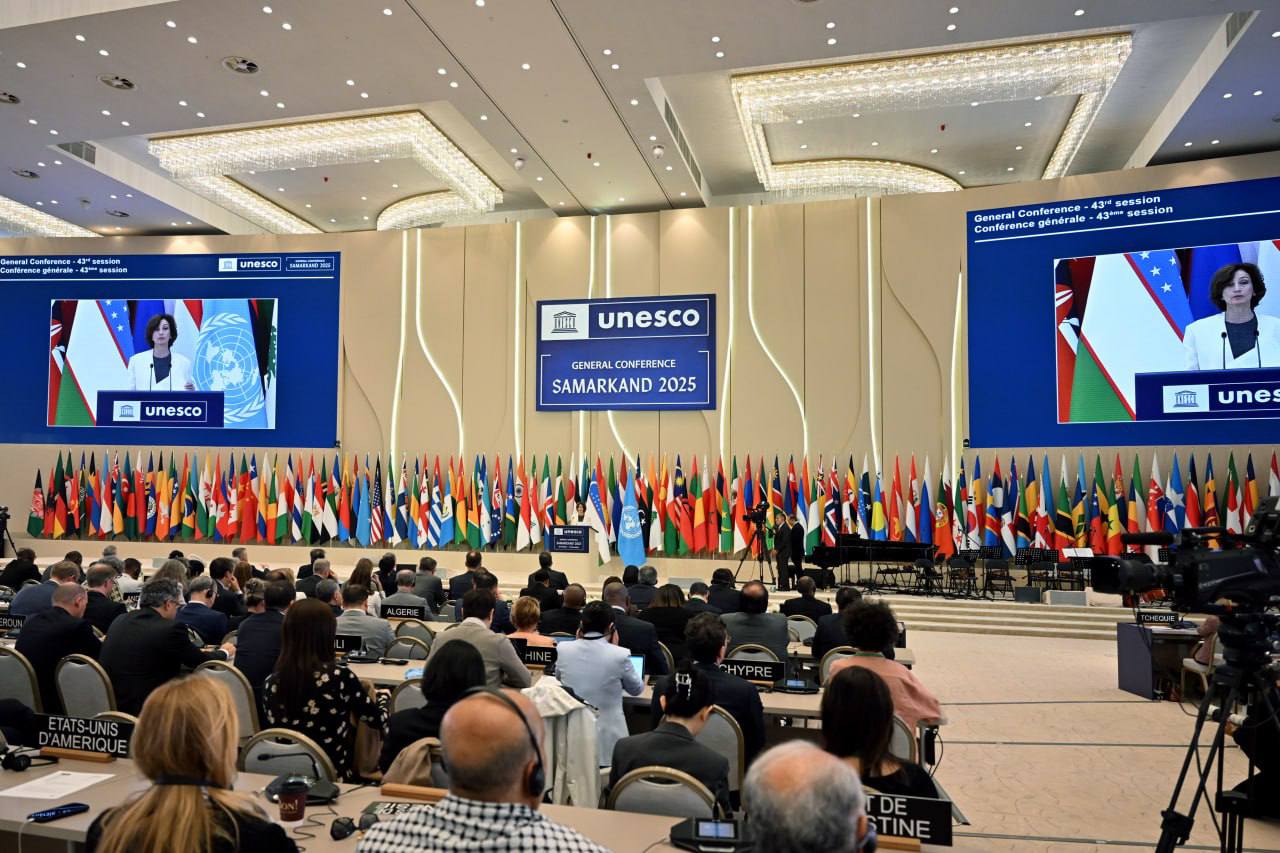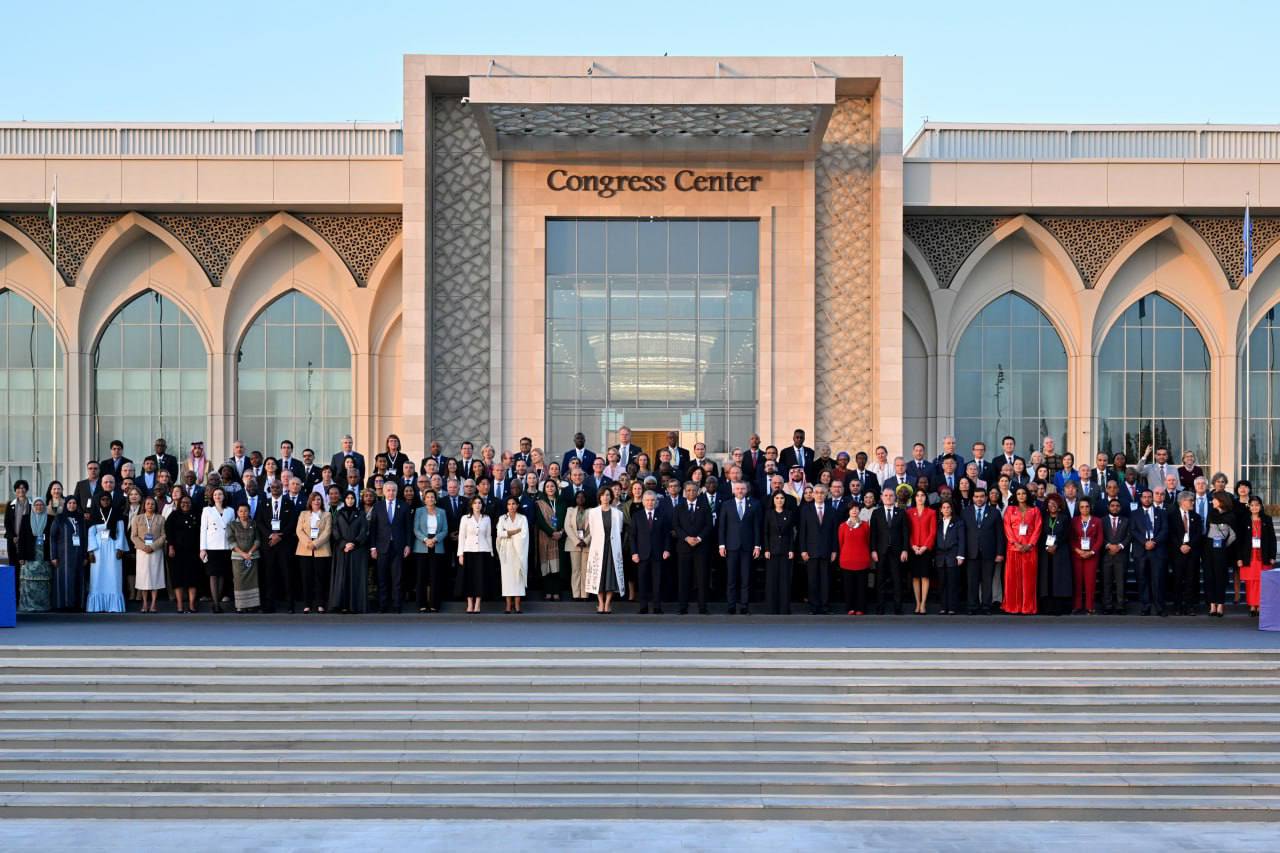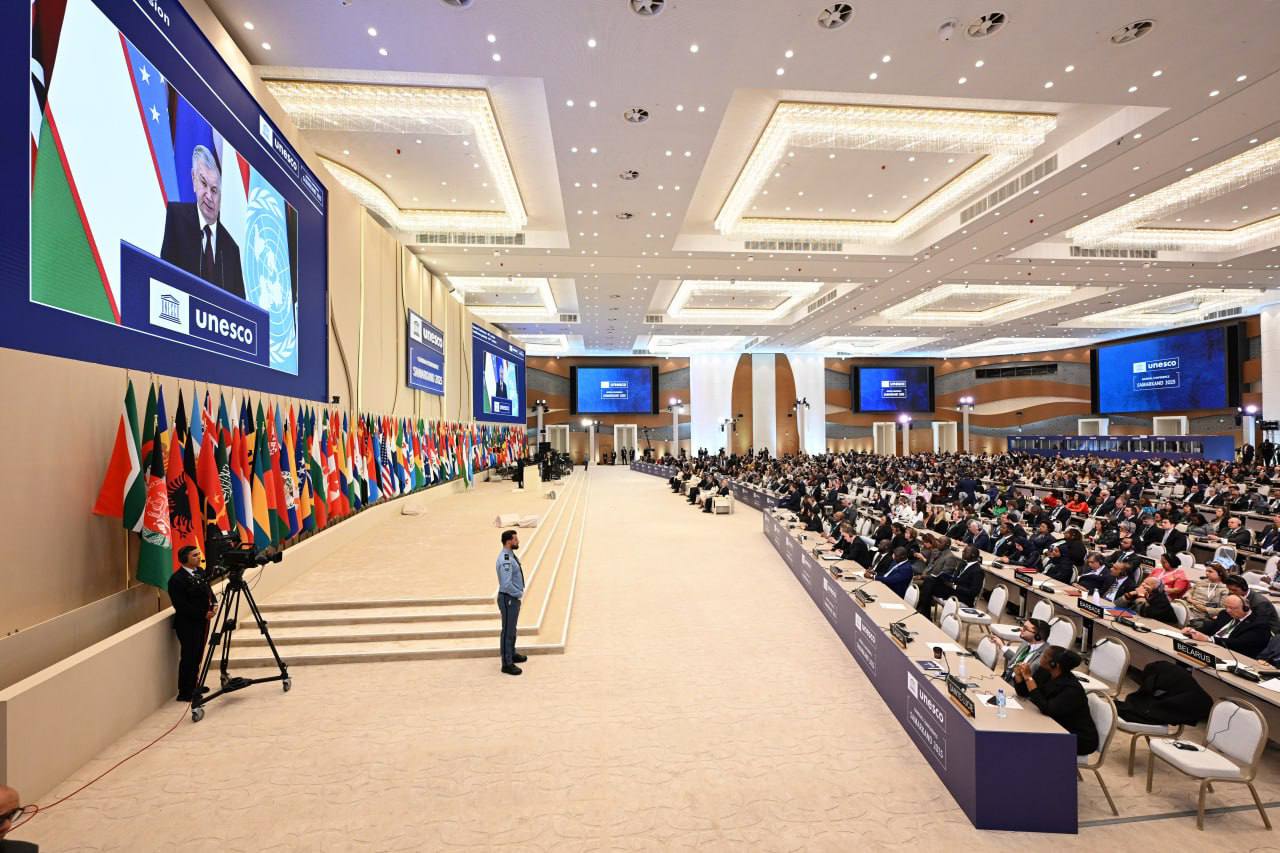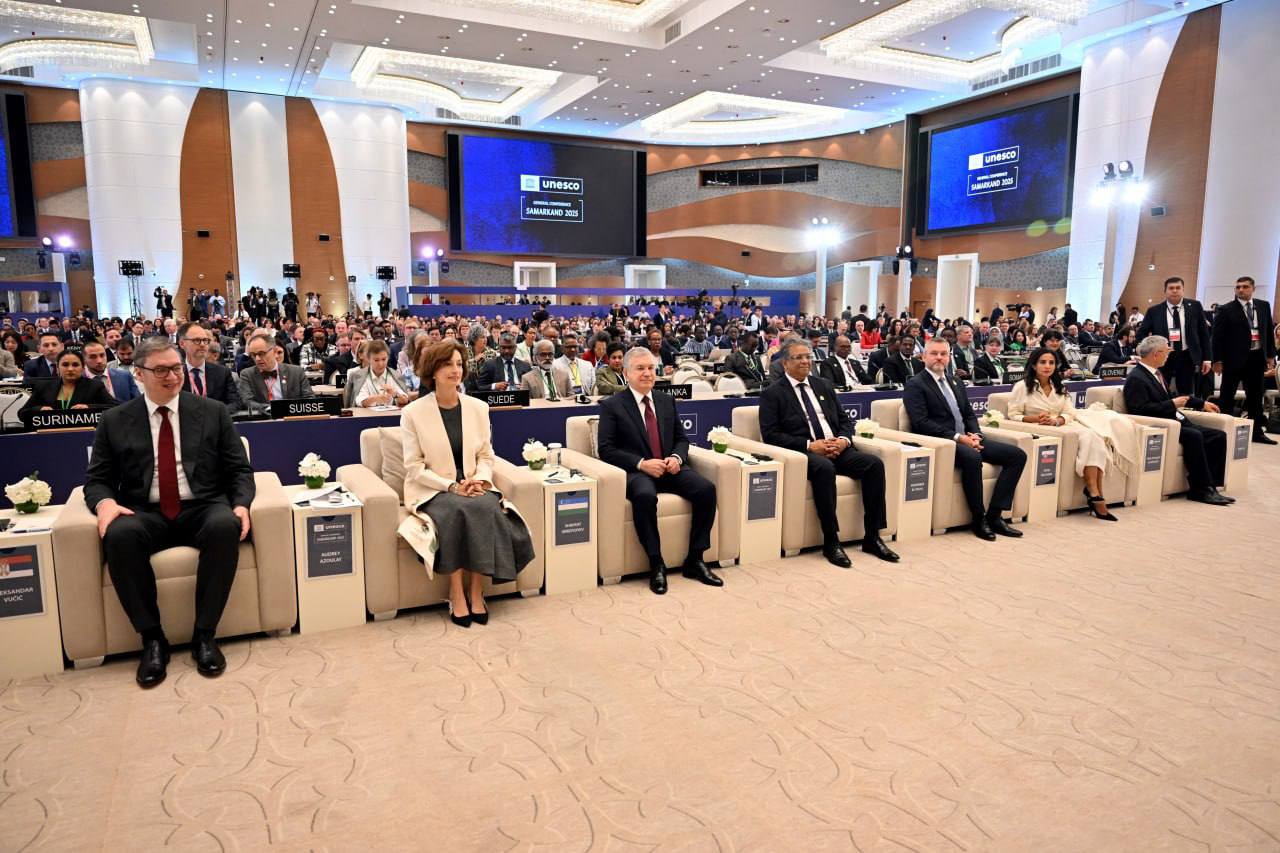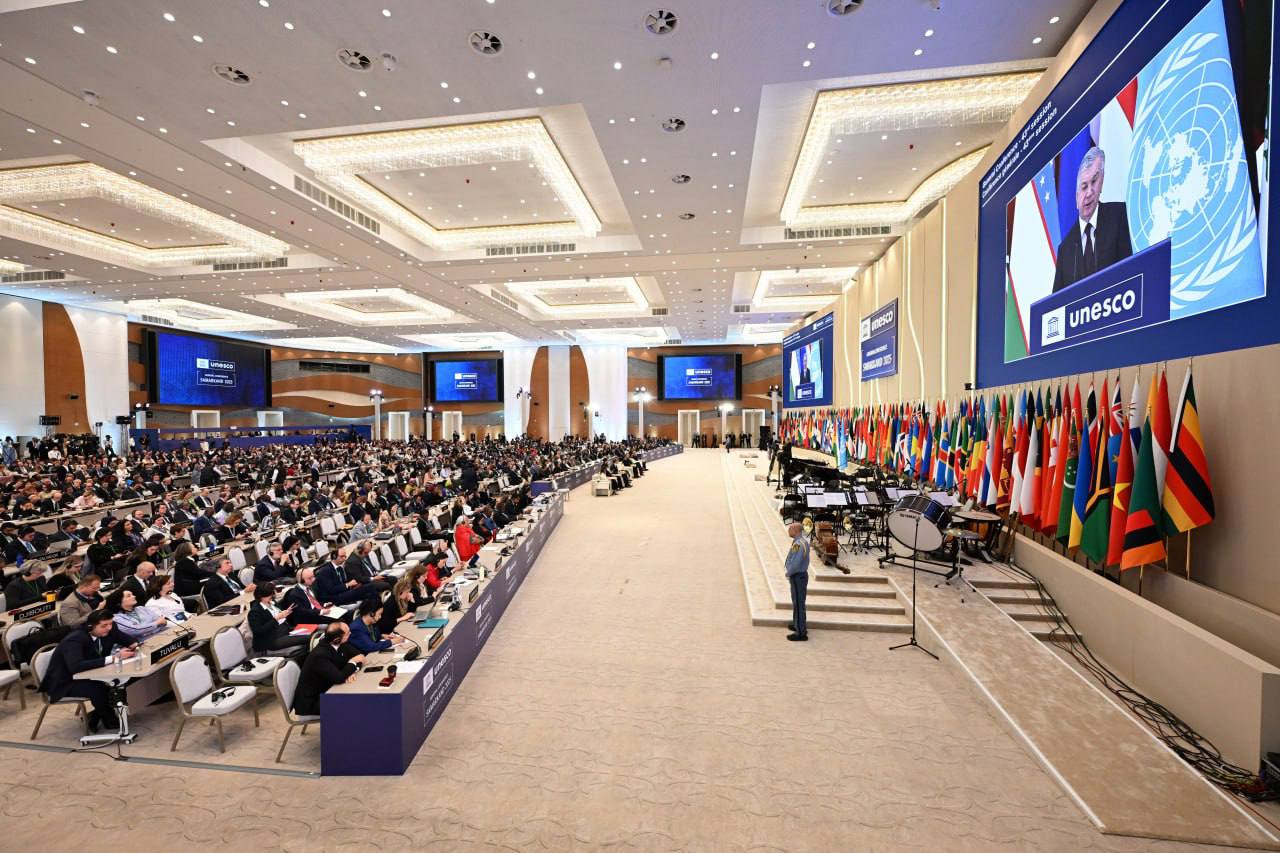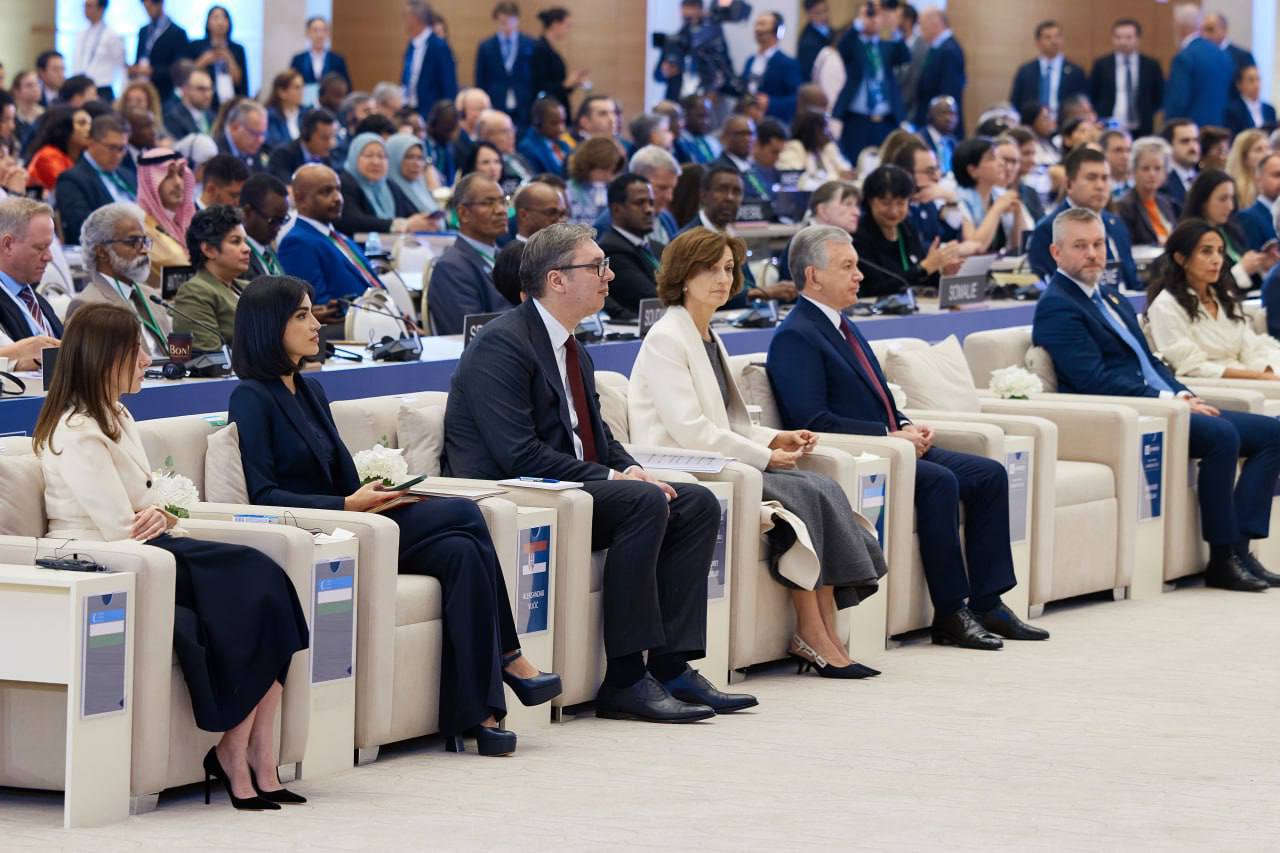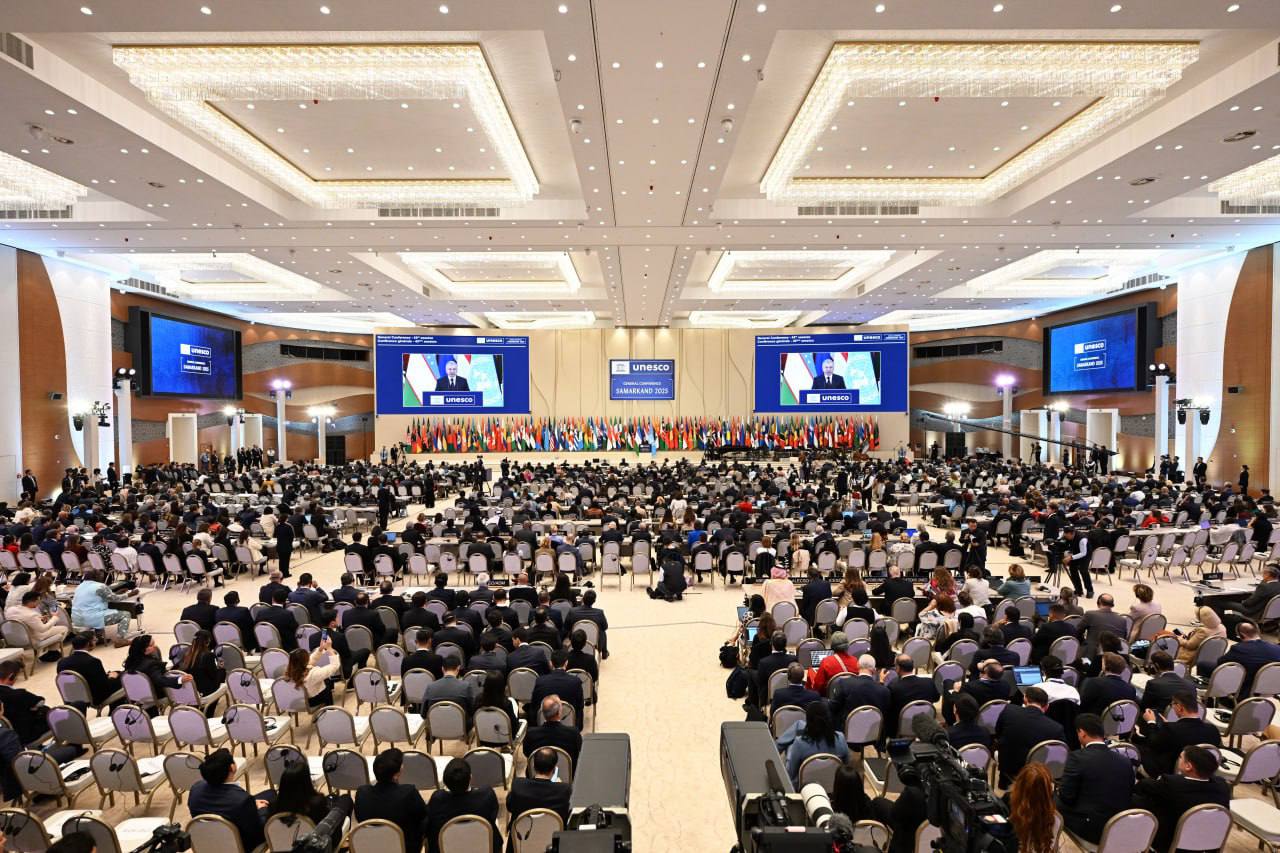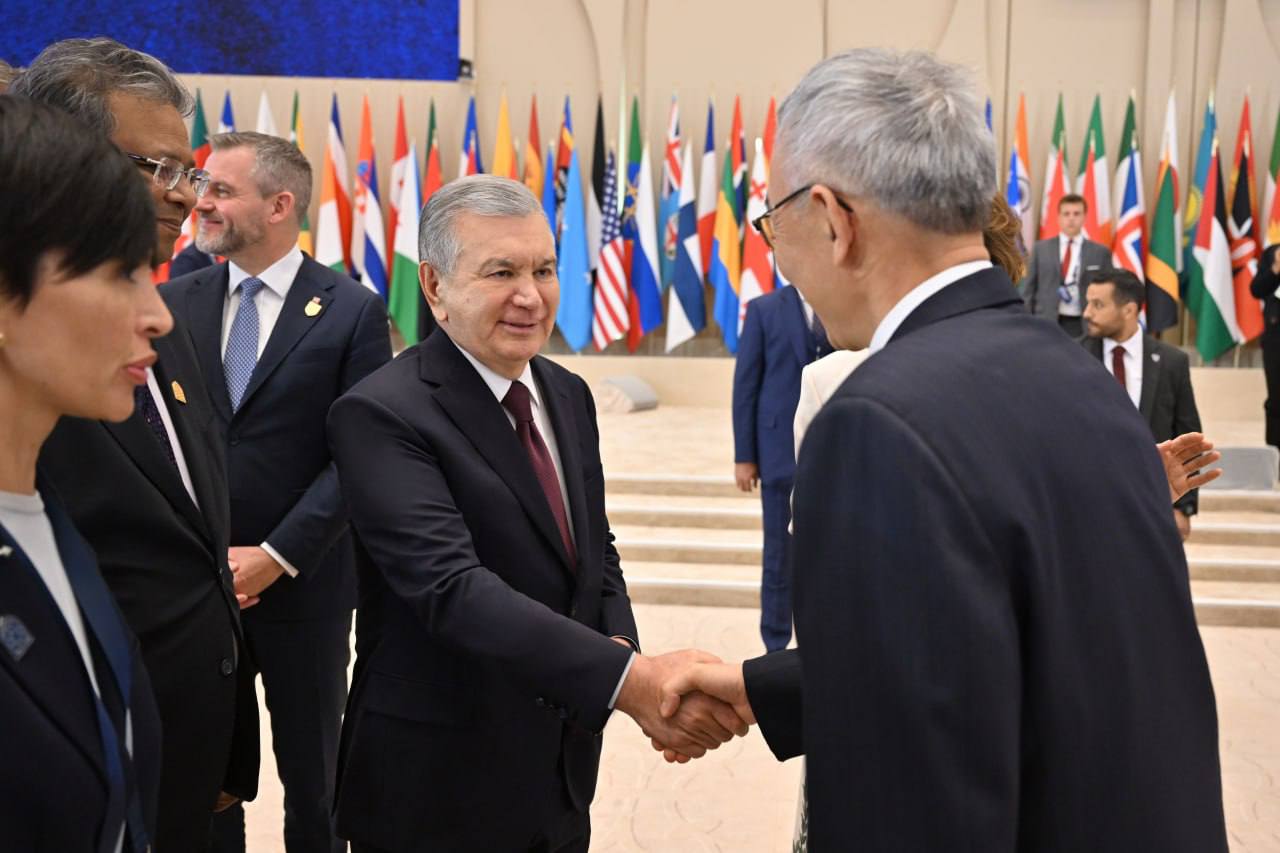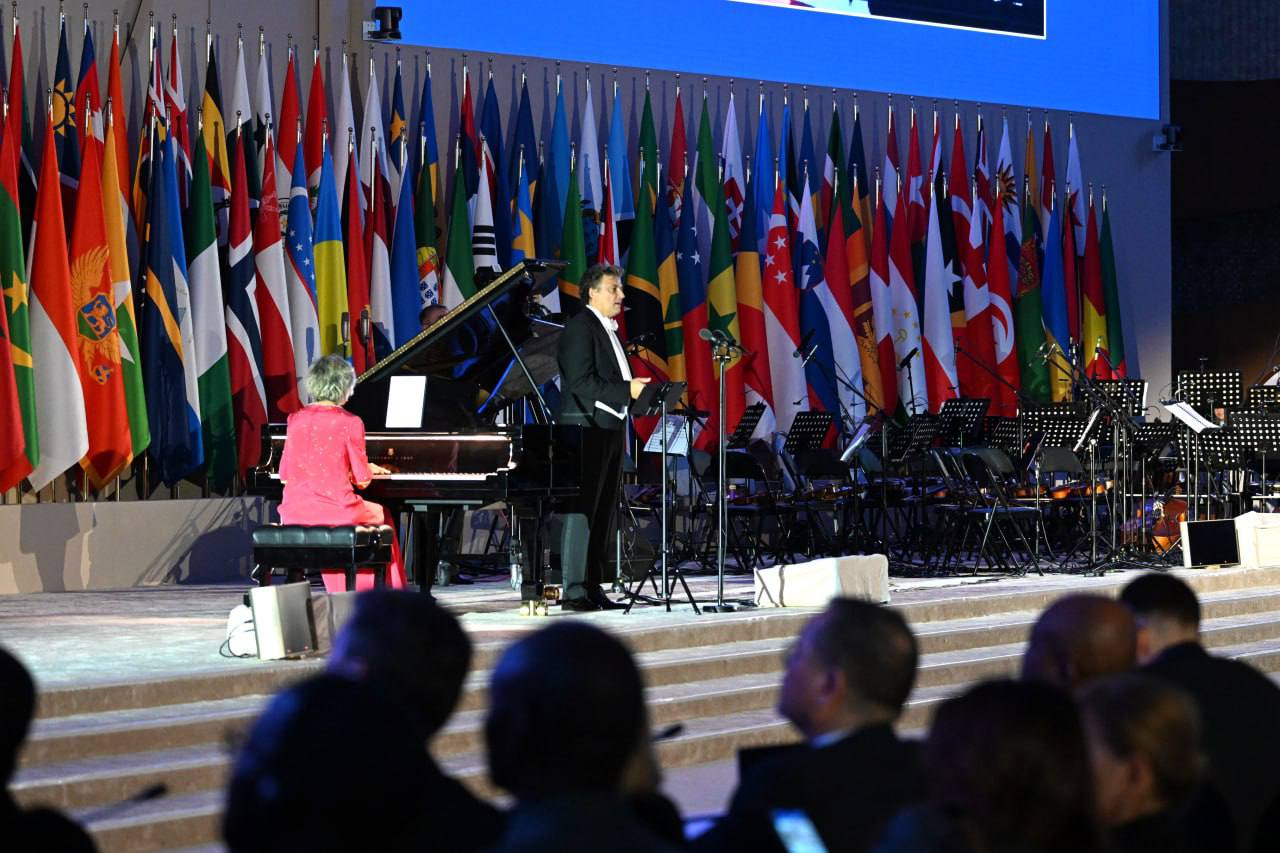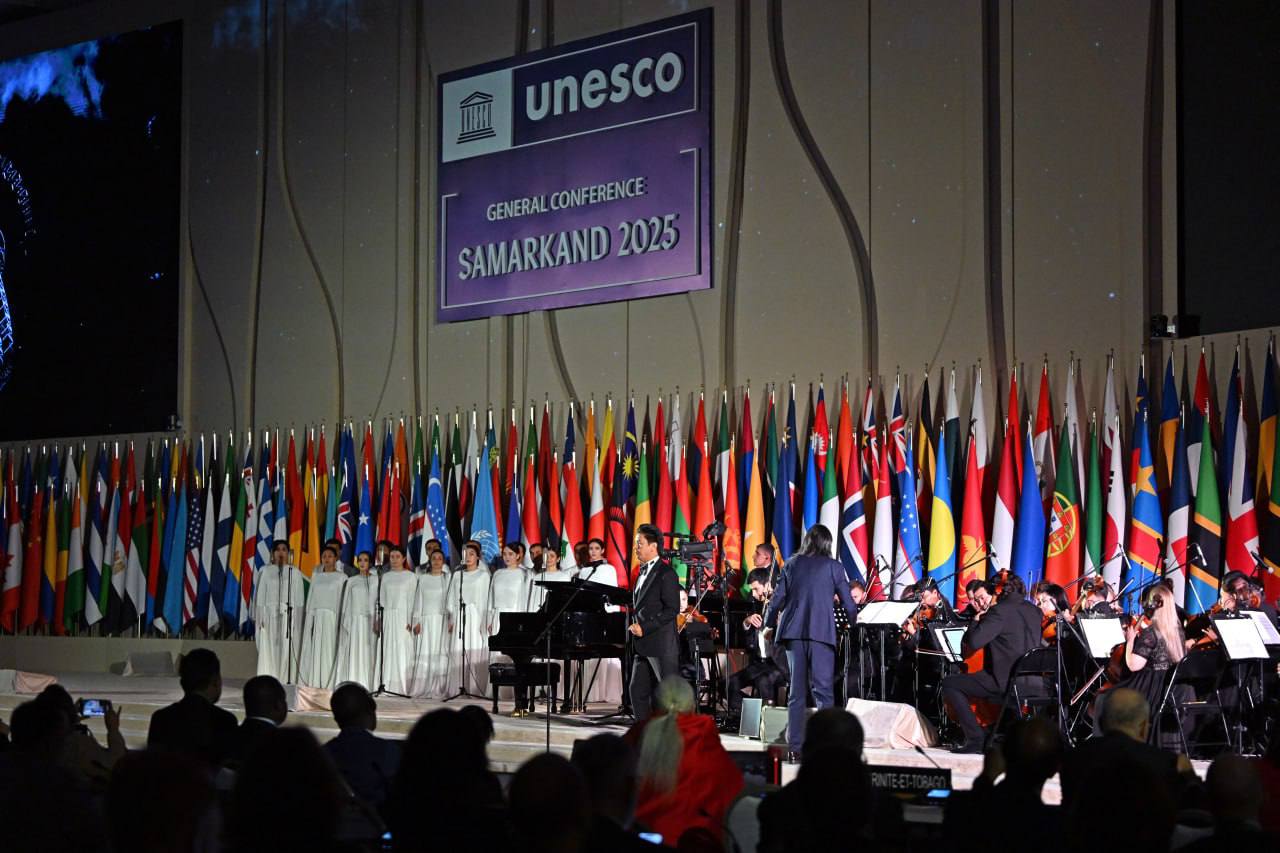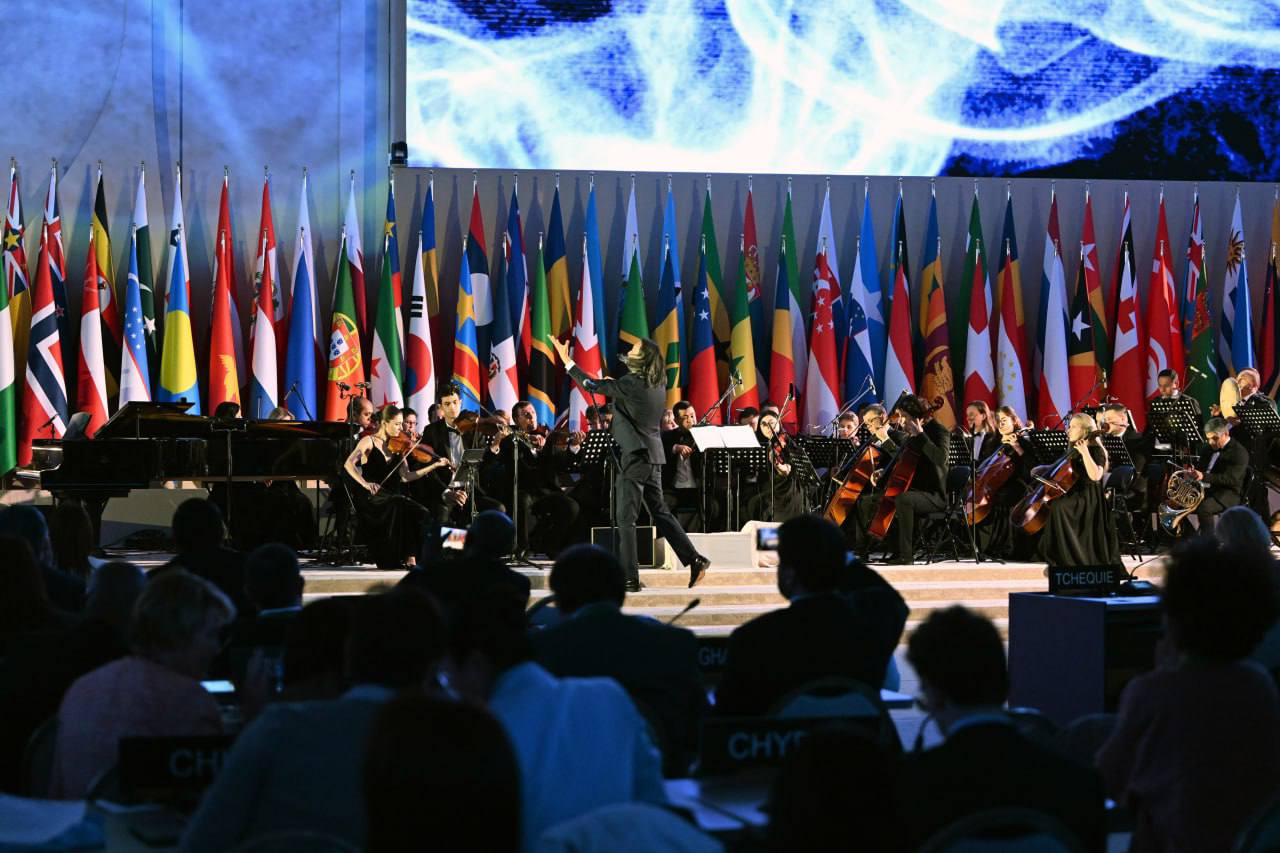
30.10.2025
On October 30, the President of the Republic of Uzbekistan, Shavkat Mirziyoyev, took part in the opening ceremony of the 43rd session of the General Conference of the United Nations Educational, Scientific and Cultural Organization (UNESCO), held in the city of Samarkand.
The Head of State warmly welcomed the participants of the forum to the hospitable Uzbek land — the crossroads of cultures and civilizations. He expressed deep gratitude to President of Serbia Aleksandar Vučić, President of Slovakia Peter Pellegrini, UNESCO Director-General Audrey Azoulay, heads of foreign governments, representatives of international and regional organizations, and all delegations for their participation in the conference.
At the beginning of his address, the President emphasized that this session is being held outside UNESCO Headquarters in Paris for the first time in the past 40 years.
- Holding of such a representative forum in Samarkand is regarded as a manifestation of the high trust of the member states of the Organization in the large-scale and accelerated reforms being carried out in the New Uzbekistan, - stated the Head of State.
The leader of Uzbekistan noted that over its 80 years of activity, UNESCO has become a highly respected global institution that promotes international cooperation in the fields of education, science, culture, and information, as well as the strengthening of trust and solidarity.
In this context, the growing role of UNESCO in preserving the national identity of peoples, their cultural heritage, and fostering close dialogue among different religions, was emphasized.
- It is deeply symbolic that our forum is being held in Samarkand – a city that has entered human history as a center of humanistic ideas, invaluable knowledge, and intercivilizational dialogue, - stated the President.
The Head of State recalled the great legacy of Samarkand as a cradle of science, literature, and culture. In particular, he mentioned the observatory of Mirzo Ulugbek, where the famous star table was compiled, that later became the foundation for the discoveries of Copernicus and Kepler. The President invited guests to immerse themselves in the atmosphere of Samarkand – the pearl of the Great Silk Road, a land of peace and friendship among peoples.
It was noted that geopolitical tensions and armed conflicts are causing damage to unique monuments and cultural heritage, the widening gap in access to knowledge and digital technologies exacerbates global inequality.
The leader of Uzbekistan stressed that under such challenging conditions, strengthening solidarity in order to fulfill UNESCO’s main objectives takes on special importance. Uzbekistan once again reaffirmed its commitment to the noble goals of the Organization and its readiness to serve as a bridge between East and West, North and South, providing an open platform for constructive cooperation.
Today, our country is implementing a five-year cooperation program with UNESCO till 2027. Within its framework, large-scale events were held to commemorate the anniversaries of great thinkers and figures such as Abu Rayhan Beruniy, Ahmad Fergani, Amir Temur, Ali Kushchi, Kamoliddin Behzod, as well as significant dates of scientific institutions such as the Mamun Academy of Khorezm, and literary monuments including the epic Alpomish.
To the World Heritage cities of Khiva, Bukhara, Shakhrisabz and Samarkand, new sites have been added along the Zarafshan–Karakum Corridor. The natural areas of the Western Tien Shan and the Turan Deserts reflect the region’s unique biodiversity.
The President recalled that around twenty elements of Uzbekistan’s intangible heritage have been recognized by UNESCO – among them Shashmaqom, Katta Ashula, the Lazgi dance, the art of Askiya, miniature painting, the Navruz holiday, and the traditions of atlas and adras weaving. Under the auspices of the Organization, festivals such as Sharq Taronalari, as well as those dedicated to maqom art, bakhshi, folk crafts, and ethnosport, are held.
Particular attention was given to the resolutions initiated by Uzbekistan, including “The Khiva Process: Promoting International Cooperation in Central Asia,” “The Tashkent Declaration on Early Childhood Care and Education,” and “The Tashkent Declaration on Access to Information”.
UNESCO Chairs and associated schools are operating in the country, while Tashkent and Fergana have been included in the Global network of learning cities. Hundreds of cultural heritage sites have also been restored based on modern technologies and international standards.
The President announced that, within the framework of the Samarkand conference, a number of additional events are taking place: the Biennale of contemporary art in Bukhara, opening of the Regional Center for the Development of Early Childhood Education in Tashkent, awarding ceremony for the UNESCO–Uzbekistan International Prize named after Abu Rayhan Beruniy, as well as a conference on the application of artificial intelligence in the museum field. Uzbekistan will also join the Global Convention on the recognition of qualifications concerning higher education.
Next, the leader of our country put forward a number of proposals and initiatives aimed at developing key areas of UNESCO’s work.
The development of inclusive education and the use of artificial intelligence technologies were declared an absolute priority. The President proposed the creation of a UNESCO Platform for the Development of Inclusive Education for children with special needs and called for a World Summit on Vocational Education. Uzbekistan is ready to implement the pilot project “Artificial Intelligence – School” and organize an International Forum of Experts on AI Ethics under the auspices of UNESCO.
The leader of Uzbekistan also emphasized the importance of preserving intangible cultural heritage. Interest was expressed in advancing the UNESCO Memory of the World Program, established to protect and ensure access to unique heritage objects, such as oral traditions, manuscripts, archives, valuable historical documents and cultural records.
An initiative was put forward to declare November 19 as International Documentary Heritage Day and to establish an International Institute of Digital Heritage within UNESCO’s structure.
The Head of State proposed holding an International Congress on Crafts and Folk Arts in Bukhara in 2027 within the framework of the UNESCO Creative Cities Network.
To promote gender equality and develop women’s leadership skills, the President advocated for the establishment of a UNESCO Academy for Women’s Leadership and the organization of a Global Forum of Women in Education, Culture, and Science in Samarkand, with the participation of renowned researchers, artists, educators, and innovators from all continents.
A relevant issue highlighted was the need for effective joint action to address the climate crisis.
The Head of State emphasized the negative impact of climate change on cultural heritage and proposed the establishment of an international initiative, “UNESCO Eco-Capital”, as well as the development of a UNESCO Executive Board resolution on preserving cultural heritage in the context of globalization and climate change. Uzbekistan expressed its readiness to host an international symposium on this topic in Khiva.
Among other priorities, the need to counter the spread of misinformation in the digital space, protect public opinion, and combat discrimination, was emphasized. The President proposed organizing an International festival of children’s cultural content and developing a Comprehensive UNESCO strategy for media literacy development.
The Head of State also stressed the importance of strengthening interfaith harmony, combating radicalism and Islamophobia, and promoting Islamic culture and enlightenment worldwide, stating: “It is important to widely promote such universal values as tolerance, mutual understanding, and concord”.
He proposed to actively leverage the potential of unique projects in Uzbekistan — the Center of Islamic Civilization and the research centers of Imam Bukhari, Imam Maturidi, Imam Termizi, and Bahauddin Naqshband.
Concluding his address, the President of Uzbekistan expressed confidence that the forum would become an important step in establishing new areas of cooperation, strengthening mutual trust, fostering global partnerships and promoting sustainable development.
It was noted that the “Spirit of Samarkand” grounded in the enduring traditions and values of UNESCO, will inspire further collaboration for the sake of shared progress.
In closing, the leader of our country wished the conference participants a successful and productive session, emphasizing the symbolic significance of holding the forum in Samarkand – a city representing peace, friendship, and mutual understanding among peoples, which underscores Uzbekistan’s high international standing and its contribution to advancing the dialogue of civilizations, strengthening mutual understanding and preserving humanity’s cultural heritage.
At the conclusion of the opening ceremony, a concert was held, prepared by both domestic and international masters of the arts. The stage featured the finest examples of Uzbek classical music and world musical heritage, performed by a symphony orchestra, a choral ensemble, and a national folk ensemble.

